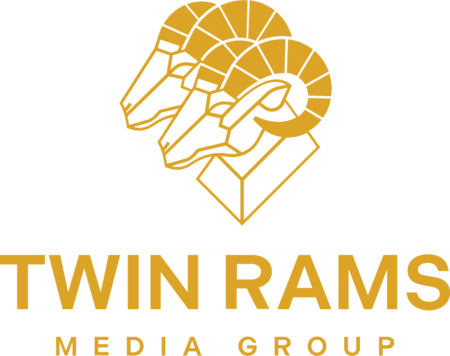An online event or a digital event is a great way for businesses to grow and acquire leads. Since it’s held in virtual spaces, geographical constraints are not a problem, and there are more chances for a business or an entrepreneur to reach more audiences. In fact, in a survey by vFairs, 93.2% of organizations considered their virtual event a success in terms of attendance rate. This means online events can lead to significant exposure, brand awareness, and lead generation. However, to get the audience and leads you want, you need to promote your online event extensively and creatively.
What are some things or elements to consider in online event marketing?
Promoting an online event effectively involves several key elements to ensure you reach your target audience and generate interest and engagement. Businesses and entrepreneurs looking forward to holding and promoting their own online events need to make sure that they’re all set.
Whether it’s a webinar, virtual conference, online workshop, virtual product launch, or online networking events, here are some essential elements to consider in your online event marketing:
- Target audience identification – Understanding the basic demographic profile of your audience helps you tailor your messaging and choose the right channels. For example, younger audiences may prefer platforms like Instagram and TikTok, while professionals might be more active on LinkedIn. Knowing what your audience cares about also allows you to create content that resonates with them. If your event is about tech innovation, target people who are interested in technology, startups, and entrepreneurship. And, of course, consider how your audience interacts online. This will help you know how to engage with them and what online event marketing strategies you can use.
- Clear objectives and goals – If your goal is to build awareness, your metrics might include the number of impressions, reach, and engagement on your promotional content. For lead generation, focus on the number of sign-ups, email subscribers, and actual attendees. If the event aims to drive sales, measure conversions and revenue generated from the event.
- Digital events manager – Having a digital events manager is also crucial to the entire event and the promotion, especially for those who haven’t hosted virtual events yet. They can take care of the online event marketing efforts, as well as oversee the other essential parts of the event. From strategic planning to sponsor coordination to promotion and marketing to technical support, digital event managers can be instrumental.
- Compelling event content – Use compelling language that sparks interest and clearly conveys the event’s purpose. An example of this would be an event called “Unlocking the Future of AI: Trends and Innovations in 2024.” High-quality images and videos can significantly increase engagement. Clearly outline what attendees will learn or gain. Use bullet points for easy readability.
- Effective communication channels – Segment your email list to send personalized invitations. Include a clear call-to-action (CTA) and a link to the registration page. Create a content calendar for consistent posting. Use a mix of content types, such as posts, stories, reels, and live sessions. Write blog posts related to the event topic to draw organic traffic. It’s also best to ensure your event page is optimized for SEO. Share your event where it’s contextually appropriate.
- Registration process – Ensure your registration form is simple, mobile-friendly, and quick to complete. Minimize the number of required fields. Set up automated reminders through email or calendar invites to reduce no-shows. Sending reminders a week before, a day before, and an hour before the event is also a good practice.
- Influencers and partnerships – Influencers who have a strong following in your industry can be a great addition to any online event marketing. They can share personal endorsements and content related to your event. Partnering with companies or organizations that complement your event is also commendable.
- SEO practices – Relevant keywords in your event page content are also crucial. These will help you create ad creatives and copies that will be used to promote your event online. Necessary backlinks from reputable sites can also improve your page’s authority.
- Interactive elements – Does your event have interactive elements? Engage your audience during the actual event with live polls. Make sure to facilitate breakout rooms or virtual activities where attendees can interact and exchange contact information.
- Follow-up and engagement – Any upcoming thank-you emails should include highlights from the event, additional resources, and a survey link for feedback. Share the event recording, presentation slides, and any other relevant materials on your website and social media channels. Keep the conversation going by sharing post-event highlights, attendee testimonials, and key takeaways.
- Analytics and Feedback – Use tools like Google Analytics, social media insights, and your event platform’s analytics to monitor performance. Send out post-event surveys using tools like SurveyMonkey or Google Forms to gather insights on attendee satisfaction and areas for improvement. Analyze the feedback and metrics to understand what worked and what didn’t. You can use these insights to improve future events.
- Budget considerations – Make sure to allocate funds for paid promotions across different channels. Monitor and adjust the budget based on performance. Budget for necessary marketing software and strategies such as email marketing services, design tools, and more. Set aside a portion of your budget for unexpected expenses like last-minute ad spend or technical support.
How to promote your online event?
To promote your online event effectively, you must employ some innovative and creative strategies. Of course, you also have to think about the considerations mentioned above to come up with the best online event marketing strategies that are fit for your brand and your event.
Here are several effective ways for your online event marketing and promotion:
- Leverage interactive content
- Create teaser campaigns
- Utilize influencer marketing
- Engage with interactive email campaigns
- Create engaging social media content
- Develop a dedicated event microsite or landing page
- Offer early bird discounts and limited-time offers
- Engage in community and forum participation
- Utilize video marketing
- Leverage content marketing
#1 Leverage interactive content
Short Live Q&A Sessions: Host short live Q&A sessions with speakers or influencers before the event to generate interest.
Polls and Quizzes: Use interactive polls and quizzes on social media to engage your audience and promote the event.
Virtual Contests: Run a contest or giveaway where participants can win free tickets or entrance to the event. This can be effective if the virtual event is a paid one.
#2 Create teaser campaigns
Countdown Timers: Add countdown timers to your website, landing page, social media, or emails to create a sense of urgency.
Sneak Peek Videos: Share behind-the-scenes footage or sneak peeks of what attendees can expect and what value they will receive if they sign up or attend.
#3 Utilize influencer marketing
Influencer Partnerships: Leverage influencer marketing for your online event. Collaborate with industry influencers to promote your event through their channels. They can create content, host additional live sessions, or provide personal endorsements.
Influencer Takeovers: Allow influencers to take over your social media accounts for a day to engage with your audience and promote the event.
#4 Engage with interactive email campaigns
Animated GIFs and Videos: Email marketing remains relevant and powerful, especially for specific campaigns like event promotion. Use engaging visuals like GIFs and videos in these email campaigns to capture the attention of the audience.
Personalized Invitations: Send personalized email invitations to segmented lists, addressing recipients by name and highlighting sessions relevant to their interests.
#5 Create engaging social media content
User-Generated Content: Encourage attendees to share why they are excited about the event using a specific hashtag. Share their posts to help build a community.
Event Hashtag: Create a unique, catchy event hashtag and encourage its use across all social media platforms. This will help boost exposure and engagement across social media platforms and reach more people.
#6 Develop a dedicated event microsite or landing page
Microsite or Landing Page: Create a dedicated microsite or landing page for your event. Include detailed information, speaker bios, schedules, and registration forms to make it easier for the audience. It not only informs your target audience but also promote your online event.
SEO Optimization: Optimize any relevant pages for search engines to attract organic traffic.
#7 Offer early bird discounts and limited-time offers
Early Bird Tickets: For paid events, offer discounted early bird tickets to create urgency and drive early registrations.
Bundle Deals: Provide bundle deals where attendees can get multiple tickets or additional resources at a reduced price.
#8 Engage in community and forum participation
Online Communities: Engage in relevant online communities and forums by providing valuable content and subtly promoting your event to the audience. You can promote your online event by casually mentioning it in your replies, too.
AMA (Ask Me Anything): You can also host an AMA session on platforms like Reddit or LinkedIn to answer questions about the event and build interest.
#9 Utilize video marketing
Promotional Videos: Create compelling promotional videos, especially short-form video content, that highlight key aspects of the event. Share these videos on your website, social media, and YouTube.
Speaker Interviews: Conduct and share short video interviews with your event speakers to give a preview of their sessions.
#10 Leverage content marketing
Blog Posts: Write blog posts related to the event topics and promote them through your content channels. These can also be repurposed and turned into short and shareable content throughout social media.
Guest Blogging: You can also partner with industry blogs to write guest posts. These guest blogs can link back to your event page, extending your reach and engagement.
These innovative strategies, along with traditional promotion methods, can boost your online event. Keep these in mind to make sure that it reaches the right people and that you acquire the leads you need to grow your business.
Do you think you need more professional help? Twin Rams Media Group can help you promote your online event. Contact us today and let us help you boost your business!
References:
https://twinrams.com/what-is-a-digital-events-manager/
https://www.vfairs.com/blog/virtual-event-stats/
https://www.mightynetworks.com/resources/online-event-marketing-strategies
https://www.socialtables.com/blog/event-planning/strategies-for-marketing-virtual-events/


